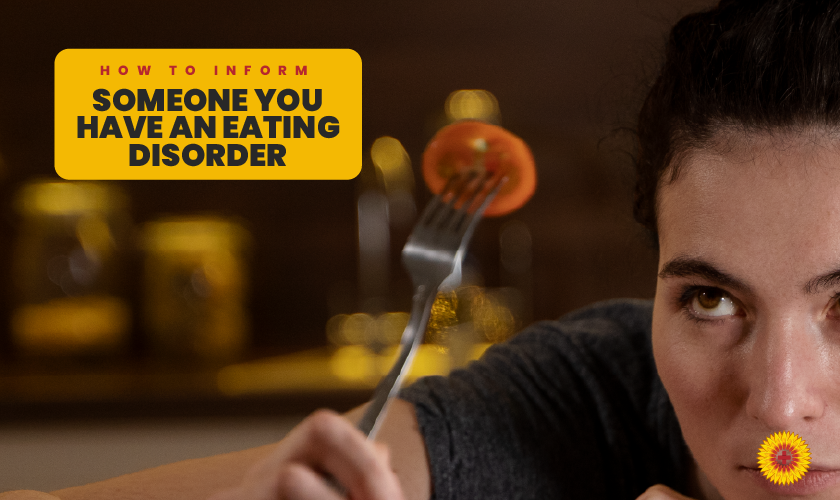Eating disorders (ED) can be an isolating experience, and many people suffer in silence.
The recovery process requires support. You might wonder how to disclose your ED to someone who would be understanding.
Opening up isn’t easy but can also be necessary for healing.
Let us walk you through the steps and strategies for telling someone about your eating disorder.
We’ll also discuss choosing the right person to confide in and the best ways to prepare and handle the conversation.
Understand the Importance of Disclosure
Understanding what you are going through is essential to your healing—keeping your struggles hidden can be emotionally draining, making it hard to get the support and treatment you need.
Here are some reasons why you should tell someone about your ED:
- Break through your isolation. Eating disorders often persist in secrecy—sharing your struggles lets others know how you feel and reduces isolation.
- You can get support. Telling someone about your ED situation can help you get needed support. Your loved ones can provide you with emotional support, and healthcare professionals can recommend treatment options.
- Make sure you stay healthy. You can be affected physically and mentally by an eating disorder. Telling others can help you get the right care and treatment to stay healthy.
How to Choose the Right Person
Take a moment to think about who you want to share your ED struggles with.
Not everyone needs to know, so choose someone you really trust and feel comfortable around.
Consider these points:
- Trustworthy: Choose someone who has proven trustworthy and respects your feelings and thoughts—a close friend, family member, or physician.
- Find someone compassionate and someone who understands the struggles related to eating disorders, and you’ll get a more empathetic response.
- Someone who’s thoughtful and is willing to listen. Some people can unknowingly say things and end up setting you off. Make sure the person you choose is willing to listen without judging you. They should ask how you want help, not just impose their ideas. They won’t freak out but will use your resources to get you more support.
How to Prepare Yourself to Open Up
Informing someone of your ED is a delicate subject best approached with care. How to prepare:
- Write down your concerns when it comes to seeking support. Being open and vulnerable can be less intimidating if you acknowledge your fears.
- Learn about your ED symptoms and possible treatments. You can explain your situation more clearly to others if you do this.
- Write down what you want to say or how you want to express yourself in a conversation so that you can reduce anxiety.
Here’s How To Tell Someone You Have an Eating Disorder
- Choose the right time and place. Find a quiet and comfortable place where you can talk without interruption. This makes the conversation feel more relaxed and safe.
- Write it down. If a direct conversation seems too overwhelming, think about writing a message or an email—you can express yourself without an immediate reply.
- Talking points are useful. There are some talking points you can use.
- “I’ve been overwhelmed and want to speak with you about it.”
- “I have something to tell you.”
- “I’ve been struggling with an eating disorder since ____.”
- “I’m really having a hard time dealing with my relationship with food, and I want to talk to you about it.”
- “I want you to hear me out and understand what I’m going through.”
- Be clear about your needs. Let the other person know what kind of support you seek—emotional support, help finding treatment, or understanding.
What if the Conversation Doesn’t Go as Planned, and the Person Reacts Negatively?
How someone we tell about our ED will respond is hard. Sometimes, people can react in a way that can trigger your ED.
If the person responds poorly or does not provide the support you need, you should:
- Stay calm. Be patient even if you don’t get the response you expect.
- Look for help elsewhere. If this person you told isn’t supportive, get support from others who are more accepting and empathetic.
- Create boundaries. Put boundaries in place if their reactions upset you. Tell them what you need from them and if their remarks or behaviors are unhelpful or triggering.
- Educate them. Educate that person about eating disorders by providing some information and resources.
- Professional help. Consult a mental health specialist who can help.
Self-Care After Disclosing Your Eating Disorder
Opening up about your ED takes a lot, so take the time to care for yourself afterward.
- Show yourself compassion and kindness.
- Do deep breathing or meditation.
- Choose healthy physical activities.
- Keep a progress journal.
- Recognize your triggers and minimize them.
Final Thoughts
By sharing your struggles, you’ve made a big step, and with the proper support and self-care, you can build a more fulfilling relationship with food and yourself safely.
If you need help from a mental health professional, please contact us.
FAQs
How to tell your parents you have an eating disorder?
Be honest with your parents about your struggle with ED, tell them how you feel, ask for help, and inform them about ED.
What is the best way of telling someone what to do in their recovery process?
Don’t tell anyone what to do; Ask if they need help or guidance.
How to avoid telling someone to get over it when they’re struggling with an eating disorder?
Instead of telling them that, show empathy and understanding. Listen carefully and ask if you can help in any way.
How to tell someone you relapsed while in recovery?
When discussing relapse, be honest, acknowledge it, and express your desire to recover. Ask for their support as well.
What to say to someone in recovery?
You can encourage and show them that you are there for them and want to listen. Don’t judge them.



No comment